Most delegates expressed their agreement with the core contents of the draft Law and believed that the amendments and supplements were necessary and suitable to reality. (Photo: Contributor/Vietnam+)
On the morning of June 24, the National Assembly voted to pass the Law on Cadres and Civil Servants (amended) with 418/423 delegates participating in the vote in agreement, with an approval rate of 87.45%.
Before the voting session, Minister of Home Affairs Pham Thi Thanh Tra, authorized by the Prime Minister, presented a Report explaining, accepting and revising in detail the draft Law on Cadres and Civil Servants (amended). The report clarified issues of concern to National Assembly deputies and analyzed the contents that had been accepted and revised based on extensive contributions.
The process of developing and completing the draft Law has attracted great attention from National Assembly deputies and public opinion. The Group and Hall discussions had 126 delegates participating in giving direct comments and 12 comments in writing. The majority of delegates expressed their high agreement with the core contents of the draft Law and believed that the amendments and supplements were necessary and suitable to reality.
After the process of receiving and accepting, the draft Law submitted to the National Assembly for approval consists of 7 Chapters and 45 Articles, 8 Articles less than the original draft submitted to the National Assembly for comments. This streamlining aims to ensure comprehensiveness but still focuses on important issues. The revised draft Law clearly demonstrates innovative thinking, aiming to create a synchronous legal corridor for civil servant management. The central goal is to build a dynamic, transparent, and effective civil service that meets the requirements of the tasks, and to build a team of professional and dedicated civil servants to serve the cause of socio -economic development and the increasing needs of people and businesses.
The revision and supplementation of the draft Law focused on three key groups of contents. The first is the connection between communal and provincial-level cadres and civil servants, unifying the civil service regime from the central to communal levels. The Law has completed the regulations to implement the policy of building a unified, interconnected, and synchronous civil service system nationwide. A notable point is that there is no longer any distinction between communal and provincial-level cadres and civil servants, aiming for equality and development opportunities for all cadres and civil servants in the system.
Second, on the mechanism for managing and using cadres and civil servants in a transparent and effective manner, in accordance with the requirements of administrative reform. This is a content with many new breakthroughs. Switching to management by job position, specifically supplementing and perfecting regulations to take job position as the center in the entire cycle of managing cadres and civil servants, from recruitment, arrangement, use, evaluation, training, planning to appointment.
Attracting and utilizing talents, the Law aims to perfect the mechanism for attracting high-quality human resources and policies for talented people, institutionalizing the Resolutions of the Politburo. Specifically, the Law stipulates policies for two groups of subjects. In which, the group attracting into the public sector applies to high-quality human resources and the group of talented people in public service activities. Three forms of attracting high-quality human resources outside the public sector include accepting into the civil service, signing contracts with typical businessmen, lawyers, experts, scientists to perform leadership and management tasks and signing contracts with high-quality human resources to perform professional tasks.
Regarding the obligations and rights of cadres and civil servants, the Law has revised and supplemented regulations to institutionalize breakthrough Resolutions, emphasizing the responsibility of leaders in cutting administrative procedures related to people and businesses, ensuring consistency and conditions for performing tasks.
Innovating recruitment work, the Law also adjusts regulations on principles, conditions for registration and recruitment methods in the direction that selected people must immediately meet the requirements of the job position, be ranked in the corresponding category after being recruited, and at the same time simplify administrative procedures.
Developing expertise and attracting human resources from the private sector, the Law supplements regulations on job positions and civil servant ranks to encourage civil servants to develop in a professional and technical path without necessarily having to appoint to leadership and management positions, while creating a mechanism to attract high-quality human resources from the private sector.
Substantive civil servant evaluation, the Law completes the content of civil servant evaluation, clarifies the principles, authority, and methods of regular, continuous, multi-dimensional, and quantitative evaluation using specific criteria linked to work results. Evaluation results are the basis for rewards, income increases, or assignment to lower positions, or even dismissal.
Promote civil service reform, specifically adjusting and supplementing content on training according to job positions, rewards, discipline, management authority, application of science and technology and digital transformation in civil service activities.
Third, regarding the transitional provisions on some contents for cadres and civil servants to suit the requirements of solving practical problems. Accordingly, current commune-level cadres and civil servants will be converted into cadres and civil servants according to the new regulations if they meet the standards and conditions on training level, without requirements on working time or old rank standards.
Probationary cases will end their probationary period and be placed in the grade corresponding to their job position from the effective date of the Law. Supplementing regulations on the transitional period for completing the placement in the job position and the corresponding grade for civil servants recruited before the effective date of this Law.
The Law on Cadres and Civil Servants (amended) has been passed, marking an important step in concretizing the Party's major policies and orientations on cadre work and the civil service system. With its groundbreaking changes, the Law is expected to soon come into practice, contributing to the building of a modern, professional Vietnamese civil service that operates for the country's development and serves the people.
Source: https://baobinhphuoc.com.vn/news/1/174373/luat-can-bo-cong-chuc-sua-doi-xay-dung-nen-cong-vu-hien-dai-chuyen-nghiep


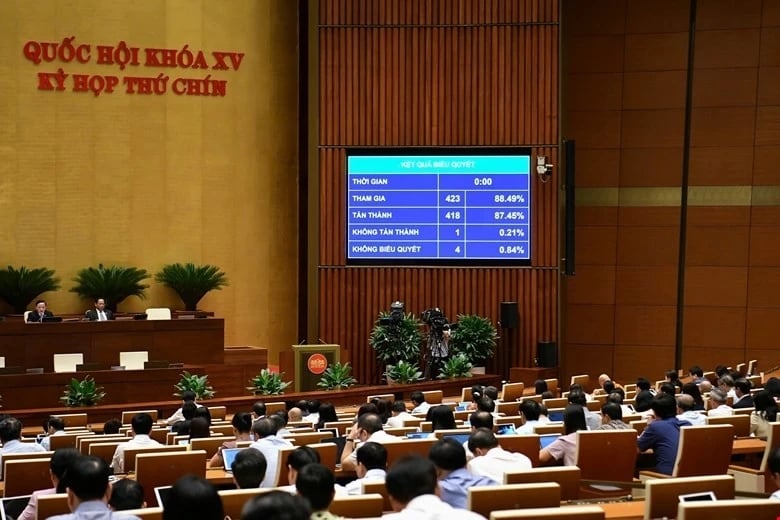






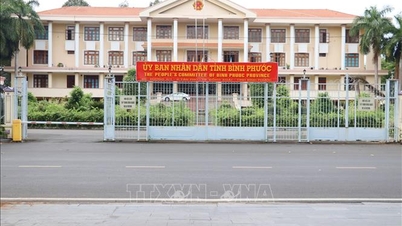








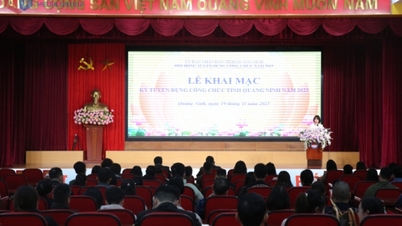







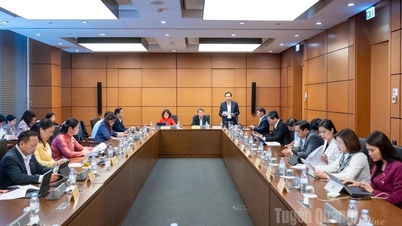

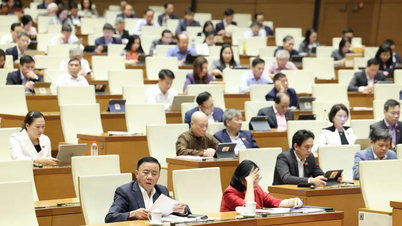

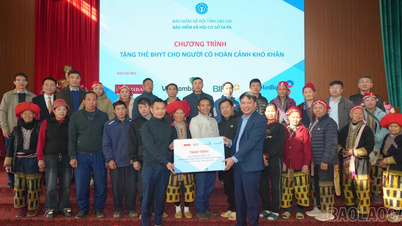










![[Photo] Parade to celebrate the 50th anniversary of Laos' National Day](/_next/image?url=https%3A%2F%2Fvphoto.vietnam.vn%2Fthumb%2F1200x675%2Fvietnam%2Fresource%2FIMAGE%2F2025%2F12%2F02%2F1764691918289_ndo_br_0-jpg.webp&w=3840&q=75)
![[Photo] Worshiping the Tuyet Son statue - a nearly 400-year-old treasure at Keo Pagoda](/_next/image?url=https%3A%2F%2Fvphoto.vietnam.vn%2Fthumb%2F1200x675%2Fvietnam%2Fresource%2FIMAGE%2F2025%2F12%2F02%2F1764679323086_ndo_br_tempimageomw0hi-4884-jpg.webp&w=3840&q=75)



















































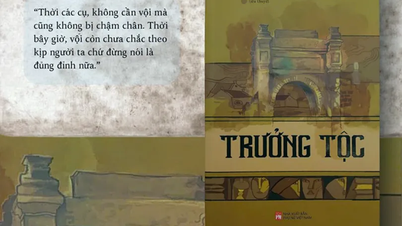


















Comment (0)